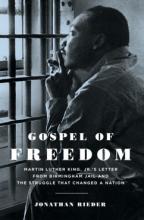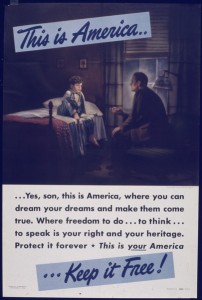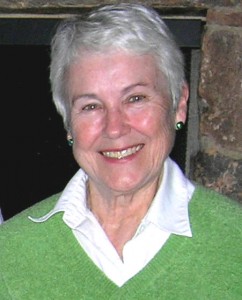Orthodox
JERUSALEM — Religious leaders from around the world have stepped up their pleas for the safe return of two Syrian bishops who were kidnapped April 22 by armed men as they were driving near the war-torn city of Aleppo.
The kidnappers, who have not been identified, abducted Greek Orthodox Metropolitan Boulos Yazigi and Syriac Orthodox Metropolitan Youhanna Ibrahim, both of Aleppo, while they were undertaking a “humanitarian mission” to help Syria’s Christian minority, according to Syrian Christian expatriates in the U.S.
The bishops’ Syrian Orthodox driver was killed in the attack.
Since 2011, more than 70,000 Syrians have died in fighting in the bloody civil war between forces loyal to Syrian President Bashar Assad and rebels seeking to oust Assad’s strong-arm regime.

Amid a finance scandal that touched the heart of France’s Socialist government, a quieter drama played out this month as the country’s top rabbi resigned his post after admitting to plagiarism.
Rabbi Gilles Bernheim offered his apologies for “borrowing” the work of others and lying about his academic credentials, ending a leadership crisis that has rocked the country’s 600,000-strong Jewish community, the largest in Europe.
Now, as the search begins for a new grand rabbi, questions are mounting about which direction the religious leadership will take — notably whether it will continue Bernheim’s move toward a more “modern” and perhaps more inclusive French Judaism, or return to a more inward-looking faith.

Fifty years after the Rev. Martin Luther King Jr. challenged white church leaders to confront racism, an ecumenical network has responded to his “Letter from Birmingham Jail.”
“We proclaim that, while our context today is different, the call is the same as in 1963 — for followers of Christ to stand together, to work together, and to struggle together for justice,” declared Christian Churches Together in the USA in a 20-page document.
The statement, which is linked to an April 14-15 ecumenical gathering in Birmingham, Ala., includes confessions from church bodies about their silence and slow pace in addressing racial injustice.
“The church must lead rather than follow in the march toward justice,” it says.
Nearly 50 million Americans are currently living below the poverty line (that is $22,000 for a household of four) and half of them are working full time jobs.
In our current economic system, the "happiness" of the super-elite is secured while the lives, liberty, and access to basic needs of the rest suffer. This isn't the American Dream and it isn't God's dream either.
"Where my feminists at?" on #OccupyWallStreet. Test your global hunger knowledge. Race and OWS. Poverty in your backyard. How to be a "1 Percenter." OWS to march on banks. Romney embraces climate change denial. Magicians say their craft makes them see faith as little more than "hocus-pocus." Catholic University sued by Muslim students. And faith, political leaders find out how far food stamps actually go.
The "sermon" consisted of reflections by five participants from different regions and traditions who were attending the Global Christian Forum for the first time. They each spoke of the joy, and often the surprise, in what they discovered here -- some of them interacting with delegates from Christian traditions they barely knew even existed.
The unity of heart and Spirit they experienced at the forum had a profound effect, they said. Emily Obwaka of Kenya, a staff member from the Association of Evangelicals in Africa, whom I met on the bus the first day of the forum, was one of those who shared. She said the forum felt like "a preamble to heaven." Such sentiments might seem excessive but they were not uncommon among the 287 forum participants from 65 countries. Joy and affirmation were among the greatest takeaways from the five-day gathering.
Albania was perhaps the most closed society in the world during the Cold War, with absolutely ruthless persecution of all religion. Churches were destroyed in every corner of that country. Clergy were eliminated. Worship was outlawed. And enforcement was brutal.
When Communism fell, and the country opened for the first time in decades, the Albanian church began a miraculous process of rebirth. We heard the moving story of the Albania Orthodox Church, rebuilding countless church structures, but even more importantly, restoring faith in the hearts of its people. I've known its leader, Archbishop Anastasios, from past encounters at the World Council of Churches, and he surely is a saint. The revival of religious faith in Albania and its compassionate service to those in need is a magnificent story of the church's witness, and the Spirit's power.
The Christian world is broad and spacious, and within its circumference, like a large bowl holding a variety of colorful fish, swim a surprisingly diverse spectrum of believers. The secular media mistakenly seem to view "the evangelical movement" as a sort of monolithic structure akin to a well fortified garrison ranged to repel the attacks of "liberals" or "progressives" or "mainline churches." Or a right-wing political force often equated with Republicanism.
The atlas also documents other dramatic trends, including the fragmentation of Christianity. New denominations, often borne out of strife and division, multiply endlessly. In Korea, for instance, there are now 69 different Presbyterian denominations. At the rate we are going, by 2025 there will be 55,000 separate denominations in the world!
That is an utter mess fueled by rivalry and confusion that hampers the church's witness and makes a mockery of God's call to live as parts of one body.
The atlas also documents the dramatic rise of revival movements throughout the world, and charts the story of Pentecostalism's rise. From its beginning a century ago, Pentecostalism now comprises a quarter of all Christians in the world. This fundamental change in Christianity's global composition, along with its geographical transformation, has created a dramatically different Christian footprint in the world.
The compelling story of the Global Christian Forum, shared with the more than 300 forum attendees (many of them new), was told in moving testimonies from Orthodox, Pentecostal, Evangelical, Catholic, and historic Protestant members of the forum's steering committee. ... It's remarkable to hear how an Egyptian surgeon became a Coptic Orthodox priest, or how a woman Anglican Bishop from New Zeland heard her calling to the priesthood as a teenager, long before her church ordained women. Story after story simply puts you in awe of God's grace.
The Global Christian Forum is the most exciting and promising ecumenical initiative I've participated in all my years of ministry. Its import can be summed up simply: This is the only place where the leadership of evangelical, Pentecostal, Catholic, historic Protestant and Orthodox churches -- which comprise all the major "families" of world Christianity -- are brought into sustained and intentional fellowship. In so doing, the Global Christian Forum is also responding to the dramatic shift of the center of Christianity from the North and West to the southern hemisphere.
Shakespeare said a rose by any other name would smell as sweet. Maybe, but a Stink Rose by any other name (say... garlic?) might get more play.
On July 19, Campus Crusade for Christ announced its plan to officially change its name to Cru in early 2012.
Brown v. Board of Education had not yet been fought in the Supreme Court when Bill and Vonetta Bright christened their evangelical campus-based ministry Campus Crusade for Christ in 1951. The evangelical church context was overwhelmingly white, middle class, and suburban. The nation and the church had not yet been pressed to look its racist past and present in the face. The world had not yet been rocked by the international fall of colonialism, the rise of the Civil Rights movement, the disillusionment of the Vietnam War, the burnt bras of the women's liberation movement, the fall of the Berlin Wall, or the rise of the Black middle class (more African Americans now live in the suburbs than in inner cities). In short, theirs was not the world we live in today. So, the name Campus Crusade for Christ smelled sweet. Over the past 20 years, though, it has become a Stink Rose ... warding off many who might otherwise have come near.
Whether it was a brilliant marketing strategy or just a sad reflection of the charged atmosphere of Christian dialogue these days, one cannot deny that Rob Bell's latest book http://www.amazon.com/gp/product/006204964X?ie=UTF8&tag=sojourners-20&li...

